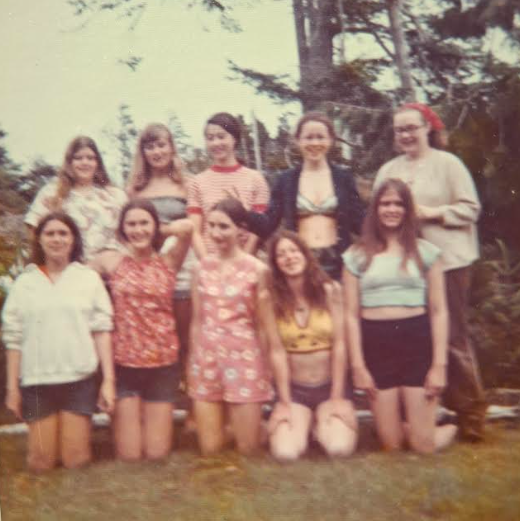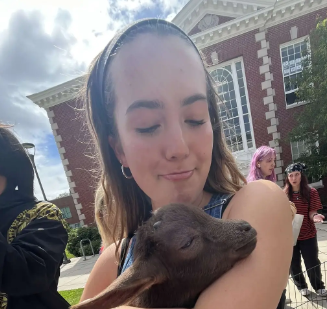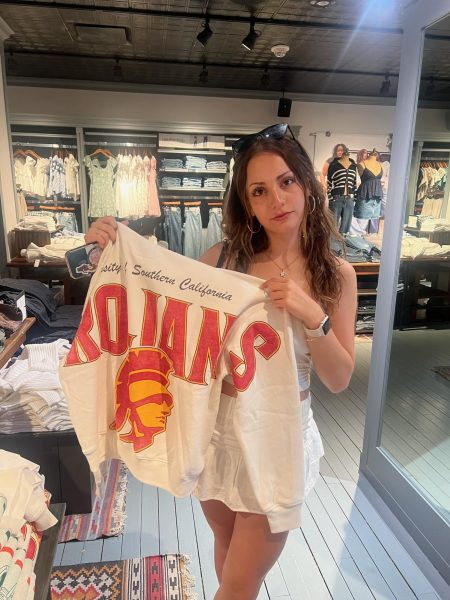
The show of this past summer — the one that was binge-watched by millions around the world — was, undeniably, “Love Island USA” (LIUSA). Season six of the show was released in early June, and fans of the reality dating show tuned in daily to watch as contestants coupled up and competed in challenges to find love while simultaneously competing for a $100,000 prize. Society’s recent obsession with LIUSA highlights the effects that watching reality shows has on fans and its impact on contestants.
“Love is Blind,” “The Bachelor” and “The Bachelorette,” “Love Island,” and “Too Hot to Handle” might all sound familiar. These reality dating shows all have different plots, prizes, and contestants, but they still center around the same idea: finding true love and connection. Everybody wants love, and some are willing to go on national TV if it means a chance of finding that spark.
Throughout the entirety of every dating show, it’s important to remember that the contestants are only showing the best version of themselves, the side of themselves that they want the world to see, and that side may not be as authentic as viewers would like to believe. Though reality dating shows may not be fully scripted, there is influence from production and editing of scenes that fans are quick to forget. These factors, however, can be key for making these shows dramatic and entertaining. Wyatt Cook, a junior at Franklin and “Love Island” fan, says he first found the show dramatic and unrealistic, commenting, “I just don’t think you see that much drama and gossip go around in everyday life.”
Arguably, competing on a reality dating show is a unique position. These contestants are put into an especially exposed position, considering they’re not just on the show to make friends but to form a romantic connection — it’s a whole new level of vulnerability that the fans sometimes overlook. This vulnerability, however, is a key factor causing fans to stay connected to the show in real life, as seeing the cast members offer up this level of vulnerability often makes them feel more relatable.
Relationships on reality dating shows may be the closest portrayal of the dynamic of real life relationships in television. Watching reality TV can be a way to observe genuine relationships for some. Violet Vorhees, a senior at Cleveland High School and fellow “Love Island” fan, reflects, “I spend a lot of time analyzing what works and doesn’t work between these couples, and, although I don’t know everything about their relationship, I think observing them helps me understand what’s crucial in a relationship.” Cook has a different perspective and believes watching the show negatively influences fans’ mental health. “A lot of the relationships on the show are really toxic.”
Other than the drama, another critical factor to the allure of reality dating shows is the cast. Contestants on reality dating shows are handpicked to be there, and most fit into a certain unattainable stereotype that makes them more intriguing to followers of the show. Jamie Huck, a school psychologist at Franklin, adds, “Unrealistic expectations of relationships [and] body dysmorphia, as only a certain body type is seen [on these shows], disconnect that we are watching a real person and not a fictional character.”
A primary difference between fictional shows and reality shows is that instead of rooting for characters, you’re cheering for a real person’s actions. “There is so much reality TV, our brains start to categorize it differently. We stop thinking about them as people but as entertainment,” says Huck. “Additionally, we can become so invested in their ‘story,’ which is a random person’s actual life.” This can lead to a lot of hate being aimed towards the casts of reality shows, which was seen on social media following the ending of the most recent season of LIUSA.
Social media positively and negatively impacted the aftermath of LIUSA season six. It seems that some recent fans of the show have forgotten that the contestants are real people with real lives and feelings. Vorhees is aware of the adverse effects that have come with the online fame for some contestants. Vorhees believes, “The hate on social media some of the islanders received [was] kind of crazy in my opinion … some people online took it too far.” Specific participants on the show received a large amount of hate online after the show ended, such as Daniela Ortiz Rivera.
Rivera received hate mainly due to the fact that she was in a love triangle with fellow castmates Kaylor Martin and Aaron Evans for the majority of her time on the show. Soon after the season six reunion, Rivera went on TikTok to talk about bullying and bring awareness to suicide prevention, specifically speaking about how she has lost multiple family members and people close to her due to it. “Bullying is not a joke; it is nothing that should be taken lightly. It’s important to create a supportive and inclusive environment where everyone feels safe and valued. Raising awareness and educating people on the signs of bullying and mental distress, encouraging open communication, and promoting kindness and empathy is so important to me,” Rivera commented in a TikTok video.
Cook believes much of the hate following LIUSA Season six was due to the toxicity of the relationship dynamics among the castmates. “Relationships can go badly in the real world very quickly,” Cook says, reflecting on the reunion of LIUSA. Couples from this most recent season, Nicole Jacky and Kendall Washington along with Martin and Evans, faced very public breakups on social media, with Evans and Washington taking the majority of the heat from viewers of the show. Fans of LIUSA who idolized the islanders so much made many of the contestants feel the need to address a lot of the drama from the show online. In our society where the media, especially social media, is so present, it contributed to the hate after the show.
Apps like Instagram and Tiktok also positively impacted some cast mates of LIUSA, such as Leah Kateb, who has grown her fanbase enormously since the finale of season six. Starting with 80k Instagram followers before going on LIUSA, according to the Teen Magazine, Kateb now has over 3.5 million followers. She recently started a merchandise line for her fans, and has done collaborations with companies such as Poppi, Google, and Bratz, following the ending of LIUSA season six.
During the early to middle episodes of this season of LIUSA, there was a lot of drama surrounding the infamous “fire pit scene” — as many fans call it — where the girls on the island had to choose, among three girls, which one they were going to dump from the island. Throughout the show, producers and editors seem to push the contestants into situations that can only end in drama or a dispute. In the end, Andrea Carmon was dumped from the island, a decision made by the fellow and original girls on the island, as Carmon was the new “bombshell” — a contestant that enters the show part-way through filming.
Only a short snippet was shown of the girls’ discussion when deciding who to dump from the island. This scene stirred the pot between the contestants, causing tensions as none of them knew what had actually happened. Weeks later at the reunion, the entire fire pit conversation scene was shown, revealing what really happened. The producers purposefully kept the scene under wraps until the reunion to keep tension between the cast mates and make the show more interesting for viewers. This kind of manipulation can be seen on nearly every reality and game show; someone will always be made to look like a victim, and others will be forced into strange scenarios to create more publicity around a show or episode.
A tactic used by television companies to increase the viewers and make the show more interesting is to cut off the contestants’ contact with the outside world, as seen in multiple reality TV shows, including “The Bachelor.” “I remember reading about ‘the Bachelor’ and how the contestants couldn’t bring books or watch TV … and all you can do is drink alcohol, chat with the other contestants, and hyper fixate on this person you are supposed to be falling in love with,” comments Huck. An article published by Refinery29 states that contestants on “The Bachelor” had no phones, internet, news, books, or music, similar to “Love Island’s” policies for their contestants.
As viewers of many of these shows, we must remember these are real people with real lives who don’t control what is shown to the public and typically don’t know how they are being portrayed after production. Various components contribute to how we view contestants on reality dating shows, and it’s important to remember that, although these shows are advertised as “reality,” there are a lot of changes made to make them less authentic. It’s helpful to always think critically about the media you consume and remember the internet isn’t reality! Reality dating shows are fun to watch and it’s exciting to see a season unfold, but remember to stay empathetic — it could be you out there one day!



































